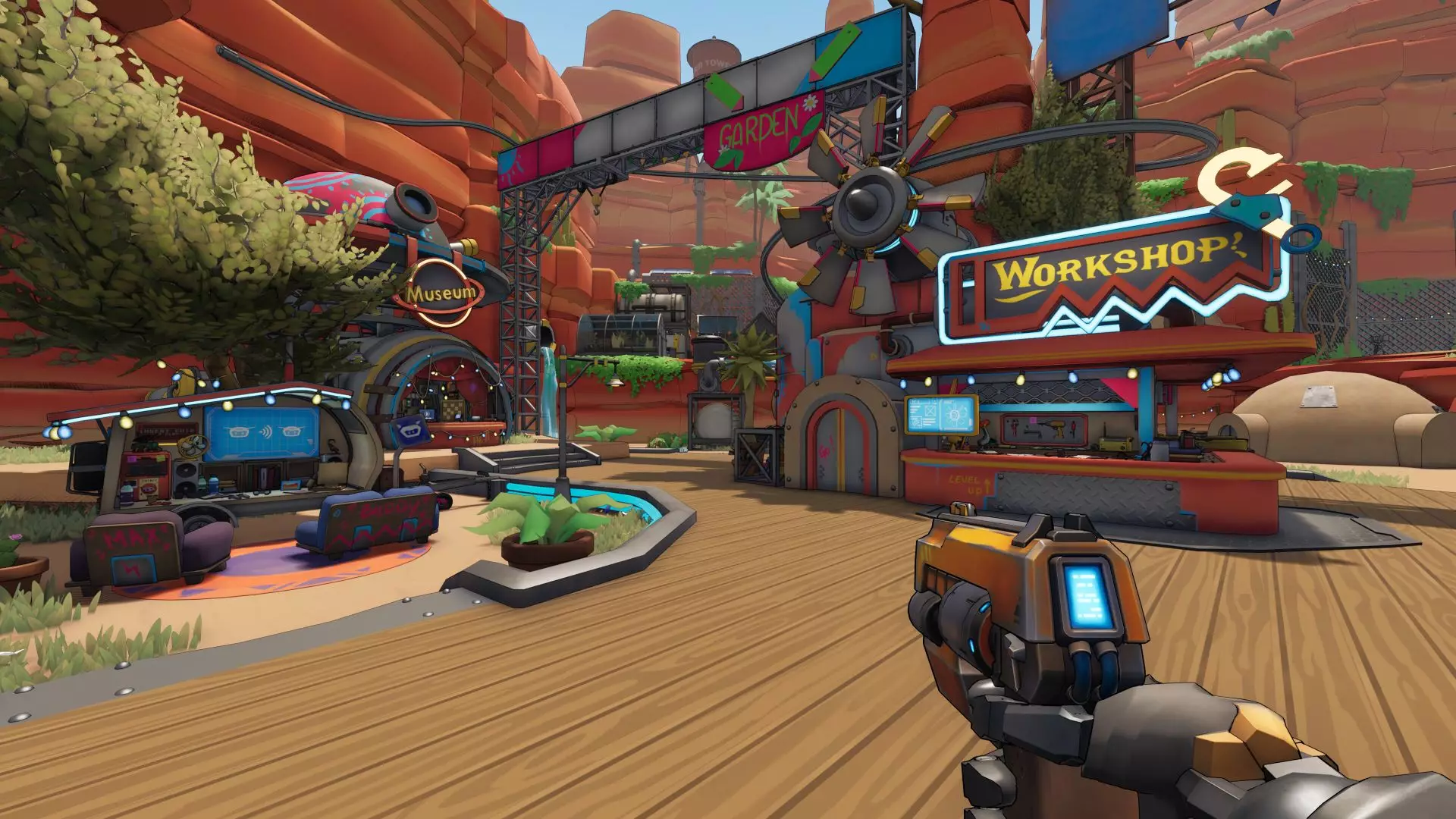In a surprising yet inevitable turn of events, RyseUp Studios has announced that Roboquest, the beloved roguelike first-person shooter, is officially coming to an end. This marks the closure of a remarkable ten-year journey, characterized by its innovative gameplay and heartfelt community engagement. Launched in early access on Steam in 2020, Roboquest shot to fame almost overnight, capturing the hearts of gamers with its frenetic action and engaging mechanics. The full 1.0 release in 2023 amplified this success, but now the studio is signaling that it’s time to move on—realizing that they had designed a game that was never intended to morph into a ‘game as a service.’
What makes Roboquest particularly poignant is how it exemplifies the passion and dedication of an indie studio willing to express vulnerability. RyseUp’s heartfelt admission acknowledges the emotional weight of such a decision. No longer can they adhere to the modern gaming trend of perpetual updates and expansions that seem to target longevity over authenticity. This choice speaks to the integrity of game development, wherein creators are sometimes required to prioritize their vision over ongoing popularity.
The Cost of Creativity: A Heartfelt Goodbye
In a blog post that resonates deeply with its audience, the developers expressed their struggles with the passage of time and the energy required to maintain a project for nearly a decade. They reiterated that continued content updates were not built into Roboquest’s foundation. As they reflect on their journey, it becomes clear that passion can be a double-edged sword. The initial excitement that drove their creations eventually morphed into fatigue, as the team realized they had squeezed all the potential out of what had once been a promising concept.
One of the most notable aspects of RyseUp’s decision is their acknowledgment of the limitations imposed by their own creation. They openly state that their game was designed to offer approximately 25 to 50 hours of gameplay. Players who have logged over a thousand hours have explored every nook and cranny of what the developers could offer. This awareness signifies a profound respect for both the medium and their community. Rather than tarnish the legacy of Roboquest with hollow updates, the studio has instead chosen to gracefully bow out.
A New Horizon: Time for Fresh Beginnings
While the closure of Roboquest is undoubtedly a loss for its fans, the developers are not packing up shop entirely. They are already hard at work on a new project that promises to rekindle the very passion that brought Roboquest to life. This transition illuminates the cyclical nature of creativity; the end of one chapter lays the groundwork for another to begin. Even as they prepare for the release of a VR version of Roboquest and a port for PlayStation set for May 27, the essence of innovation continues to breathe within RyseUp Studios.
The developers maintain that they are committed to ensuring their current fanbase enjoys what remains of Roboquest—for now. They reassured that while updates would cease, the cross-platform multiplayer experience would remain accessible. This is a commendable gesture that shows a commitment to their community even as they pivot away from the game itself. It reflects a sense of responsibility towards the player base that supported them through thick and thin.
The Impact of Indie Development on Gaming Culture
Roboquest’s journey offers a rich commentary on indie game development, a landscape that’s often marked by both triumphs and tribulations. It circumvents the commercial pressures that larger studios often face, instead relying on authenticity and the genuine connections formed with players. In a world inundated with live service games that often feel like a relentless cash grab, RyseUp’s decision to maintain artistic integrity by choosing to conclude Roboquest on their own terms should be applauded.
The studio’s departure from the “game as a service” model is refreshing, serving as a testament to the belief that not all successful games need to be continuously updated. Sometimes, the memory—and the legacy—of a strong initial release is enough to create a lasting impact. This nuanced understanding of the gaming industry could pave the way for future indie creators, encouraging them to prioritize their core vision over pressure to conform to fleeting trends. As RyseUp Studios turns its gaze to new horizons, the gaming community eagerly anticipates what this innovative team will conjure next.


Leave a Reply